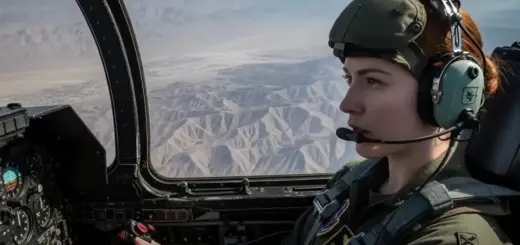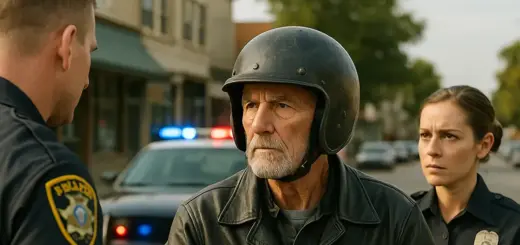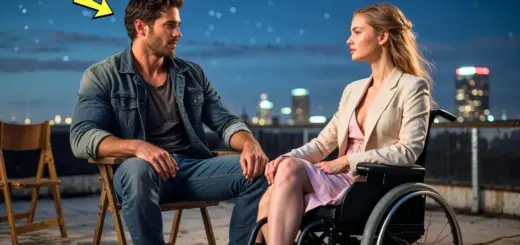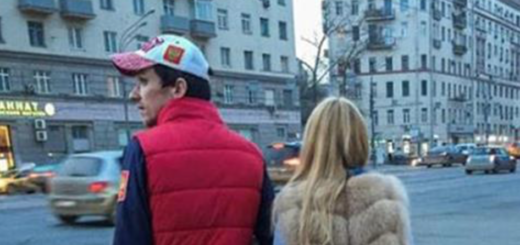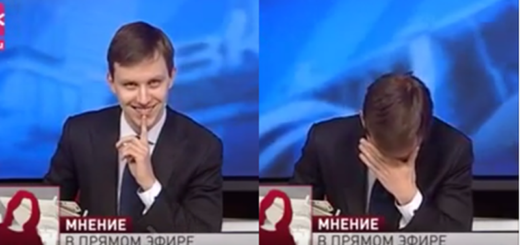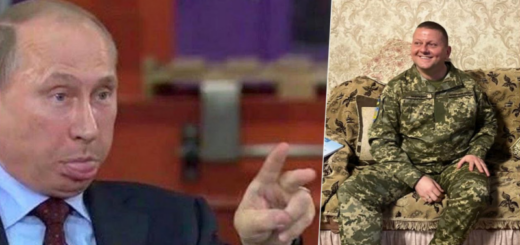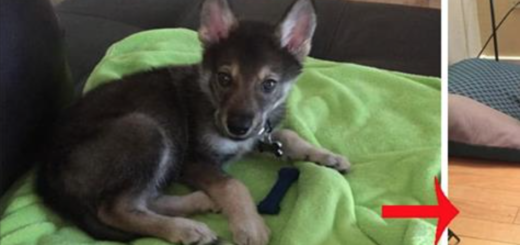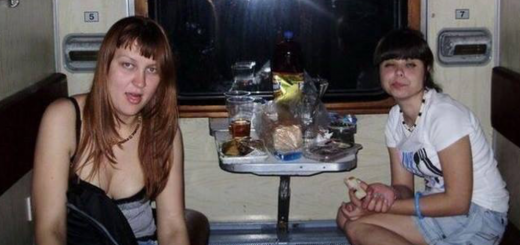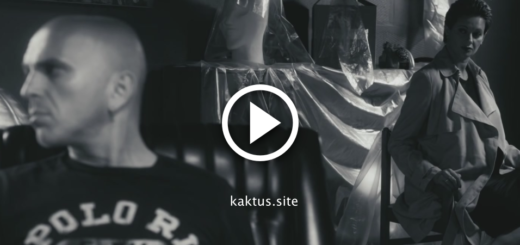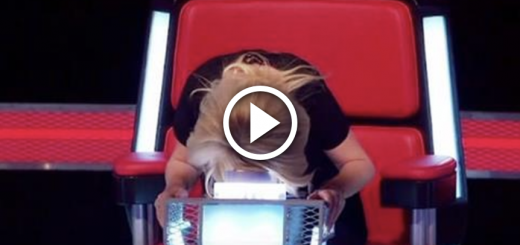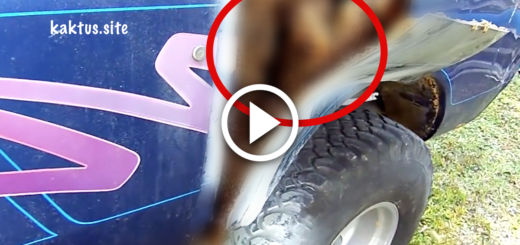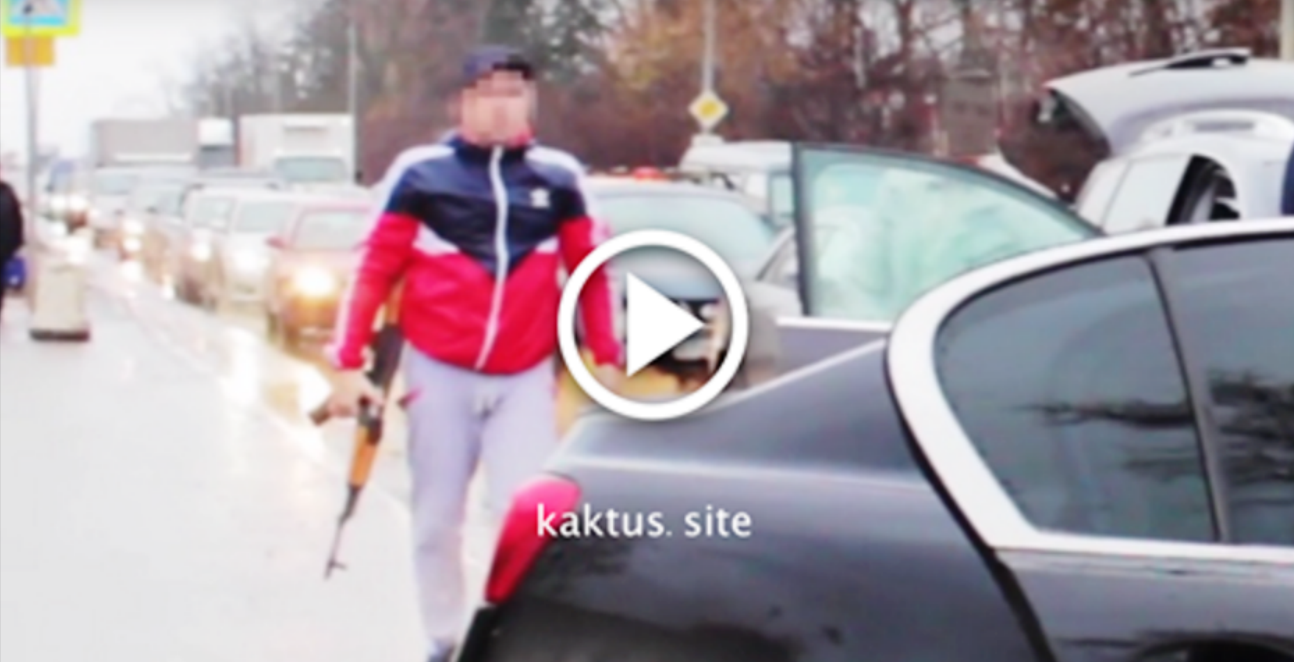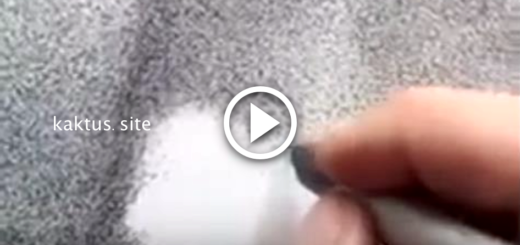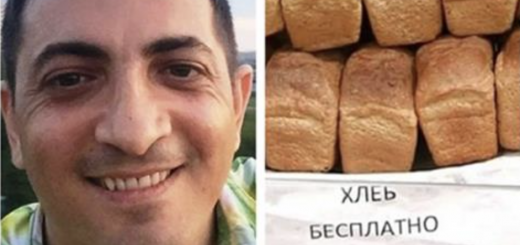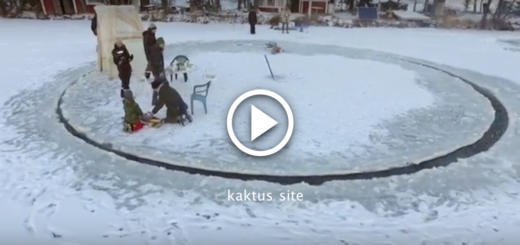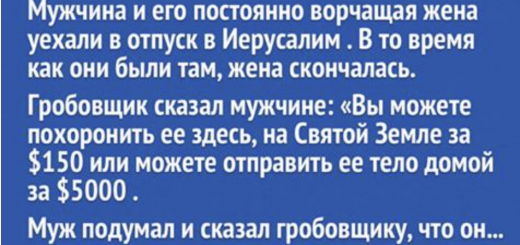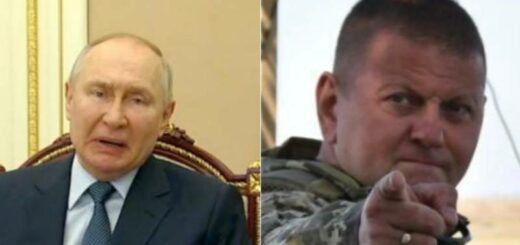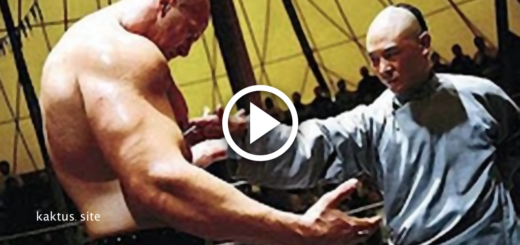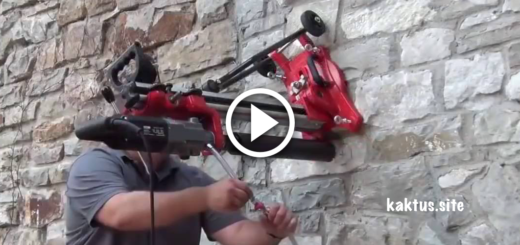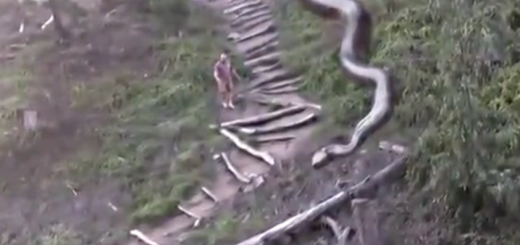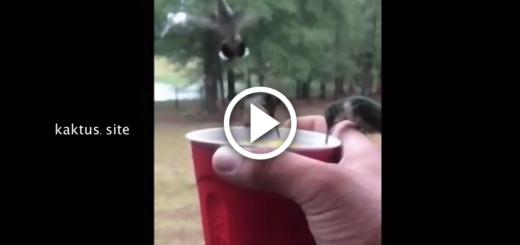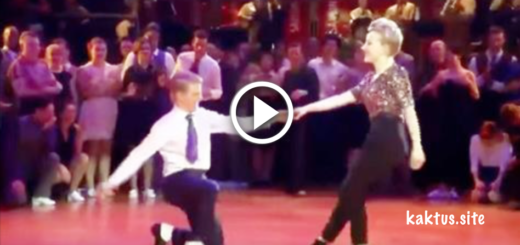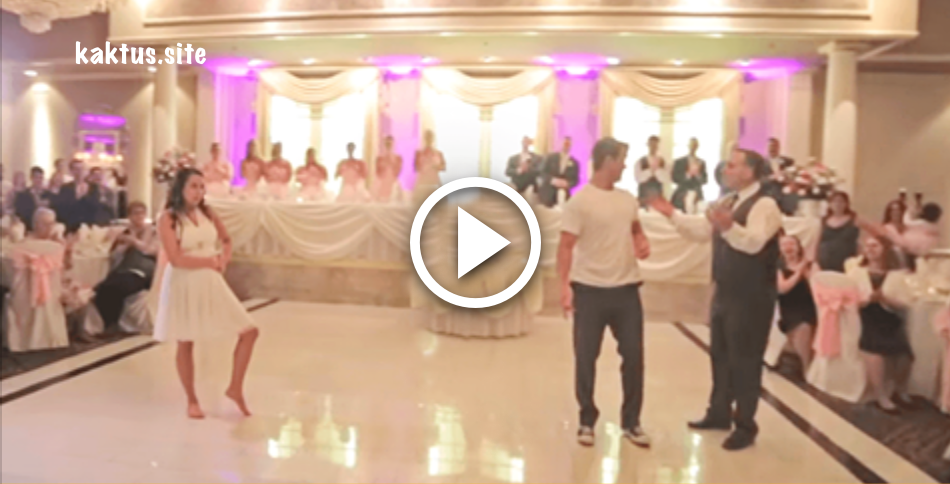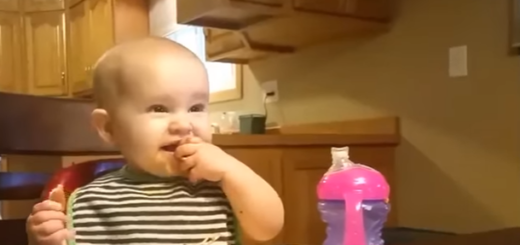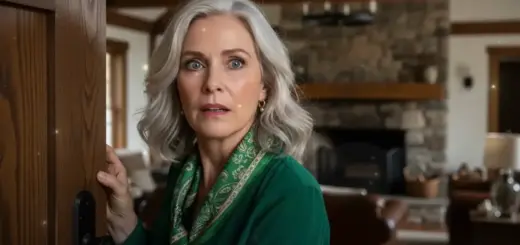As I pulled into my mother’s cul-de-sac, I spotted Mrs. Langford, the neighbor with the ever-pruned hydrangeas and eyes that saw too much. She was watering her garden, a hose coiled like a question mark at her feet. She squinted toward the car, tilting her head.
“Rebecca?” she called.
I stepped out, adjusting my duffel on one shoulder. “Hi, Mrs. Langford.”
She blinked. “Well, my goodness. You’re… still in the military?”
I smiled without showing my teeth. “Yes, ma’am.”
She nodded slowly, her eyes trailing over my bars, my stance, my silence. “I thought you might have… well, you know, left after… everything.”
“Some of us stay,” I said, and walked past her hedges without waiting for a reply.
The Cole house stood exactly as I remembered it: too perfect, too polished, too falsely quiet. The shutters were freshly painted, the driveway clean. There was no sign of age or decay. Only the porch light flickered slightly, as if even the electricity was holding its breath. I rang the bell. A pause. Then footsteps.
The door opened, and the smell hit me first. Lemon polish. My mother’s signature. Every surface in that house had been scrubbed until it gleamed with disapproval. Barbara stood there in beige slacks and a pearl-colored blouse. Her hair was pulled tight, not a strand out of place. Her eyes raked over my uniform.
The silence between us thickened. “Please don’t ruin this for Haley.”
They used to tell me my silence was disrespectful. Now they called it convenient. The dining room hadn’t changed. Not the chandelier, not the china, not the tension humming beneath the polished mahogany table. Fifteen seats. Fourteen bodies. One battlefield disguised as a family gathering.
I stood just inside the archway for a moment, watching them. Barbara flitted between wine glasses and napkin folds like she was preparing for royalty. Her earrings caught the light—tiny gold anchors, a nod to my father’s service. Haley sat, already pristine in a silk blouse, laughing too loudly at something our cousin Grant had just said. He wasn’t funny, but he was charming enough that no one noticed. Except me. I noticed everything.
My seat was waiting at the far end. Not beside Haley. Not even in the middle, where I might be visible in the family photos sure to be taken later. No, mine was next to the sideboard, where the heat from the kitchen brushed the back of my neck and the conversation rarely reached.
I pulled out the chair. It creaked. Haley raised her glass. “To family,” she announced.
“To new beginnings,” Barbara added, flashing a glance that might have been aimed at me or maybe through me.
“To Major Foster. And the bride-to-be,” said Uncle Dean.
No mention of me. No introduction. No, “Rebecca’s back.” No, “Lieutenant General Cole is here from Germany.” Just blank space where acknowledgment should have lived. I took a sip of water. The wine hadn’t reached me yet. Maybe it never would.
The former colonel sitting near Barbara—Wilkins, I thought—furrowed his brow when his eyes met mine. “You look familiar,” he said, half to himself.
Barbara leaned in quickly. “Oh. Rebecca. She’s been stationed overseas doing… security work.”
The words hit like a slap disguised as small talk. “Security detail,” Haley clarified with a smile. “She guards doors. Important ones, I’m sure.”
A few chuckles floated across the table. They didn’t come near me. I let my eyes rest on the silverware. A salad fork. A dessert spoon. A knife too dull to draw blood but sharp enough for pretense. My silence wasn’t submission. It never had been. But here, in this house, with this family, silence had always been treated like a threat.
Wilkins tilted his head again, his eyes narrowing. “Wait a minute. Afghanistan. 2012. FOB Kalma.”
I didn’t blink. “Yes, sir.”
His mouth opened like he might say something more, then closed again. He looked at Barbara. She gave the tiniest shake of her head. He turned back to his plate. Of course. I let the silence grow between spoon clinks and throat clearing. No one asked me a question. No one paused to include me. I could have been a well-dressed ghost. But even a ghost leaves a chill.
The server finally reached my side of the table with the wine. I took the glass without a word. Haley turned toward me then, her eyes glinting with the pleasure of performance.
“So how long are you here for, Becky? Or are you on call to guard a missile silo or something?”
A smirk rippled down the table. I took a sip, let it settle, then set the glass down slowly. “The people I guard,” I said, my voice calm but deliberate, “outrank this entire room.”
A silence bloomed. Not loud, not angry, just… still. Even the chandelier seemed to hold its breath. No one laughed. For the first time, they didn’t know where to place me, and that terrified them.
My name wasn’t on the seating chart, neither was my title. It was printed on thick, pearl cardstock laid out on a brass easel just inside the church foyer, table by table, name by name. And as my eyes scanned downward past cousins, plus-ones, and former neighbors, I found nothing. No Rebecca. No General Cole. Just silence printed in a floral font.
I stood there longer than I meant to, watching as other guests filed past me, murmuring pleasantries, adjusting corsages, and brushing invisible lint from lapels. A woman in lavender heels reached around me and tapped the board. “Oh, table eight, near the stage,” she squealed to her partner. “That’s close.”
I looked again. Table twelve. Bottom corner. Near the fire exit. The emergency exit. Of course. Barbara had mentioned it casually that morning, like an afterthought, as she passed me a plate of fruit I hadn’t asked for. “You’ll be at table twelve. Out of view. For everyone’s sake.” She hadn’t even waited for me to respond.
Now here I was, in dress blues, ribbons straight, hair pinned with military precision, standing like a statue in the church’s entryway, trying not to calculate how deliberately I’d been placed on the margins.
The church was beautiful, I’ll give them that. White lilies framed the altar, and soft violin strings floated from the speakers. A woman in a headset adjusted pew ribbons with surgical attention. The stained glass glowed in soft golds and blues. Everything was curated, controlled. I was not part of the curation.
Barbara approached from the side, a swish of pale beige and practiced warmth. “You clean up well,” she said, her eyes scanning my medals like they might stain the air. “Just remember, no press. If anyone asks what you do, just say you’re in logistics.”
I stared at her. “I command brigades.”
She tilted her head slightly. “And you’re here as a guest.”
Before I could answer, a photographer brushed past, camera clicking. He paused, looked me up and down, then turned to capture a group shot of Haley laughing with three bridesmaids. The lens didn’t swing back.
A voice behind me whispered, “Cold in here, huh?” It was one of the ushers, chuckling as he adjusted his cufflinks. “Or maybe it’s just the bride’s mother.”
I said nothing.
The ceremony was brief, efficient. Haley wore white like it had never been questioned. Andrew stood beside her—polished, proper, unreadable. He scanned the pews once and stopped when his eyes brushed mine. He didn’t smile, didn’t nod, just looked, then looked away. No one mentioned the woman who dragged his bleeding body out of a minefield. Apparently, that wasn’t part of the fairy tale.
When the priest asked for close family to come forward for the blessing, I stood out of habit, a reflex more than desire. But Barbara’s hand was there before I could move, lightly, gently, like she was smoothing a wrinkle on my jacket. Her fingers rested just below my elbow. Her voice was barely above a breath.
“Let’s not confuse things,” she said. “This is Haley’s day.”
I looked down at her hand, then up at the aisle. Haley and Andrew were kneeling, heads bowed. A row of family encircled them. I could have walked forward. No one could have stopped me. But that wasn’t the point. The point was, they believed I didn’t belong. I sat. The violinist began something sentimental. Guests dabbed their eyes. Flashbulbs flickered.
At the reception, my table was tucked behind a pillar beside a catering door. The place card read R. Cole, in small font, no rank. The napkin was a shade paler than the others. An accident, maybe. Or a message. A waiter poured wine into the glasses around me but skipped mine. When I asked, he glanced at his list and said, “Oh, non-drinking guest.” I didn’t correct him.
From across the room, Haley floated like a candle flame. She posed for photos, twirled in white, kissed cheeks, and hugged people with the kind of intensity that only ever felt like possession. Andrew kept one hand on her lower back, the other loosely curled around his glass. He never looked my way again. At one point, a woman asked if I worked security for the venue. I told her yes.
Then the toasts began. Barbara raised her glass. “To love and to loyalty. Two things this family values above all.”
The room chuckled politely. Haley beamed. Andrew shifted his weight. I took a sip of the wine I’d finally poured myself. It tasted expensive and empty. That was the moment I knew they didn’t think I was family. But they were about to learn what kind of family I command.
“She’s just a gate guard. Who would want her?” my sister said into the microphone.
The room laughed. It wasn’t a gentle laugh. It was sharp—the kind of laugh that slices before it echoes, the kind that lingers longer than it should. The kind I used to hear in locker rooms, around dinner tables, behind closed doors I wasn’t supposed to know existed. This one just had better lighting and more expensive wine.
Haley stood at the center of the ballroom, glowing beneath the chandeliers. Her dress shimmered as if the event had been tailored around her. She held the mic in one hand and a champagne flute in the other, balanced like a queen with a crown and scepter. All eyes were on her. She lived for that.
“To think,” she said sweetly, scanning the room, “even my big sister made it here tonight, traveling all the way from wherever she’s stationed now. Guarding doors for greatness,” she grinned, turning slightly toward my table. “Everyone give a round of applause for the silent sentry in our lives.”
More laughter. A few polite claps. One or two guests shifted uncomfortably, but most just smiled and raised their glasses, oblivious or, worse, complicit.
Barbara chimed in from her table, her voice carrying with the crispness of authority. “She’s the shame of this family, but at least she made it on time.”
That did it. The whole room tilted with amusement. I rose. Not quickly. Not in anger, but slowly, steadily, like something inevitable unfolding. Andrew was already watching me. He hadn’t laughed, hadn’t smiled, just watched the way someone might watch a storm gathering over calm water.
Haley’s smile faltered for half a breath, just enough to register, then she lifted the mic again. “Oh, come on,” she laughed. “It’s a joke. Lighten up, Rebecca. You always took everything so—”
Andrew moved. He stepped forward—deliberate, not rushed, not hesitant, just decided. Conversations stilled mid-sentence. Utensils paused mid-air. Every photographer pivoted, lenses catching motion in a scene they hadn’t scripted. He walked the length of the room, past tables of old commanders, academy friends, and distant cousins in tailored suits. Each step seemed to echo.
When he reached me, he stopped exactly one pace away. Then he saluted. A sharp, crisp, precise military salute. The kind you don’t give to a sibling, or a friend, or a joke.
“Ma’am,” Andrew said, his voice steady, carrying clear. “Please forgive my wife.” He turned to the room, still holding the salute. “This,” he said, “is Major General Rebecca Cole, my commanding officer.”
Gasps. Not whispers—gasps, audible, collective, as if every tuxedo in that room suddenly lost its starch.
I didn’t move. Haley swayed where she stood, the microphone sliding from her fingers. It hit the floor with a hollow thud. She took a step backward, eyes wide, mouth opening, and fainted. Barbara stood abruptly, knocking over a flute of champagne.
“Rebecca,” she started, but the word dissolved into a breathless choke.
And I, I didn’t even blink.
They didn’t speak, not because they didn’t know what to say, but because every word would admit what they’d done. The ballroom held its breath like it had swallowed a landmine. Silence clung to the walls, stuck in the folds of linen tablecloths, settled inside every untouched flute of champagne. The orchestra had stopped mid-melody. Forks hovered mid-air. Guests blinked like they’d forgotten how.

